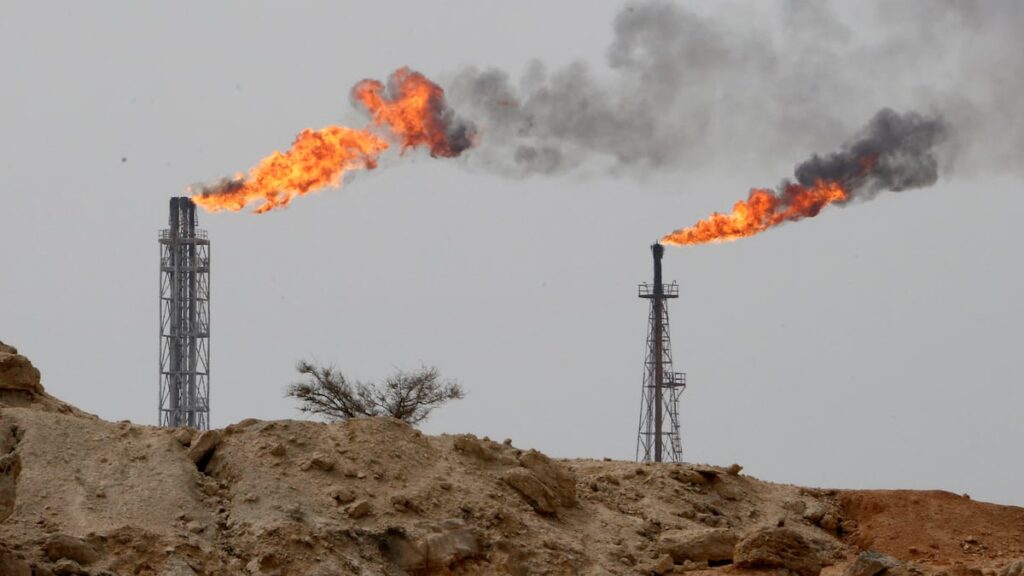The world correctly sees the climate crisis as the most urgent threat posed by its dependence on oil, coal and gas, but there are other, often overlooked consequences. Fossil fuels have long driven conflicts, displacements and geopolitical instability.
As the conflict with Iran escalates, we once again witnessed how unstable the global fossil fuel market is, and how closely tied to the tide of war.
When Israel launched an attack on Iranian nuclear sites, oil prices surged due to fears of supply disruption. Brent Durude jumped nearly 8%, exceeding $78.50 for a short time, but West Texas intermediate was not too late.
The same source said, “…As a military conflict suddenly burns with one of the world’s biggest oil producers, the market is attracting attention when they happen to control the Strait of Hormuz.”
Reuters later reported that a second anxiety had hit the market in mid-June. After we targeted Iran’s nuclear lands, we reported that we had strengthened the fear of wider conflict and potential damage to our major energy infrastructure.
Supply disruptions have been minimal so far, but the risk of interference with oil shipments through the Strait of Hormuz remains a major factor driving market response.
Consider the major wars of the last century. Germany’s push towards the Soviet Union during World War II was a desperate bid to capture the Caucasian oil fields. Japan’s invasion of the Dutch East Indies in 1941 was motivated by the same need. In 1990, Saddam Hussein’s armed invasion of Kuwait was not merely a border dispute. It was a move to grab one of the richest oil reserves on the planet.
Now imagine one of the most important factors in modern conflict: energy-rich, locally produced and impossible to monopolize. A world where power sources do not require war.
Green energy sources such as solar, wind and hydropower do not only reduce carbon emissions. They dismantle the geopolitics of petroleum. They allow states to generate their own electricity, reduce their dependence on fossil fuel exporters, and eliminate one of the central motivations behind many modern conflicts.
Renewables also weaken the economic grasp of authoritarian regimes that rely on oil revenues to fund oppression and military attacks. The global transition to clean energy is not just an environmental obligation. It is a democratic and peacebuilding strategy.
As we move away from fossil fuels, the market will also stabilize. It will reduce the vulnerability of the stock market to geopolitical shocks, supply chain disruptions and oil price volatility. Investing in predictable, locally-produced renewable energy will promote greater economic stability around the world.
Spend your days with Hayes
Subscribe to our free Stephenly newsletter
Columnist Stephanie Hayes shares thoughts, feelings and interesting business with you every Monday.
You’re all signed up!
Want more free weekly newsletters in your inbox? Let’s get started.
Check out all options
This shift does not only ease the boom and bust cycles that have been linked to oil dependence. Unlock new paths of innovation, create millions of jobs, and support sustainable and inclusive growth.
And it’s not just about avoiding the war over oil. And so is the case for preventing wars that are ignited by climate change itself. As fossil fuels heat up the planet, they lay the foundation for future conflicts over water, arable land, food security and forced displacement.
We often talk about renewable energy in terms of saving planets. It’s true, but it’s incomplete. We must also talk about saving lives. Not only from rising seas and extreme heat, but also from the crisis of bombs, invasions and refugees.
A peaceful world requires more than diplomacy. The conflict infrastructure needs to be dismantled.
The transition to green energy is a double victory. Address the root causes of climate collapse and remove one of the most dangerous war triggers in history.
Thais Lopez Vogel is the co-founder and trustee of the Volo Foundation, a private family organization that exists to accelerate change and global impact by supporting science-based climate solutions, strengthening education and improving health. This opinion article was distributed by the invading sea website (www.theinvadingsea.com). It publishes news and commentary on climate change and other environmental issues affecting Florida.

